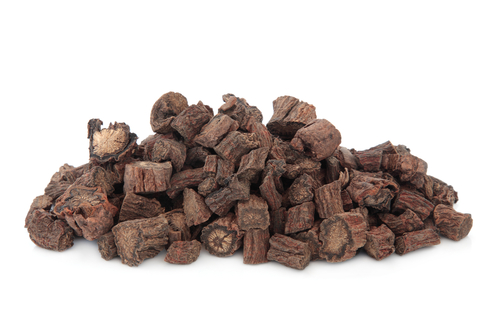A natural compound from the plant danshen (Chinese red sage, Salvia miltirrhiza) called tanshinone I (Tan I) appears to kill mesothelioma cells by inducing a specific type of cell death. The findings contribute to a better understanding of the anti-tumor activity of Tan I in mesothelioma cells.
The study, “Activation of JNK and IRE1 is critically involved in tanshinone I-induced p62 dependent autophagy in malignant pleural mesothelioma cells: Implication of p62 UBA domain,” was published in Oncotarget.
Danshen has long been used in traditional Chinese medicine to treat cardiovascular diseases. But recent studies suggest that a group of compounds found in this herb, called tanshinones, also have anti-tumor activity. Tan I, in particular, was found to inhibit tumor growth and invasion of breast, prostate, and lung cancers. However, little was known about the effects of this compound on mesothelioma cells.
A research team from South Korea found that Tan I was toxic in lab-grown mesothelioma cells, halting the spread of cells and inducing cell death. The authors found that this anti-tumor activity was based on the activation and balance between two cell death mechanisms, called apoptosis and autophagy.
The primary activated cell death process is called apoptosis, where the cells suffer several major physical changes that will ultimately lead to cell death. Autophagy is a less common cell death process, and is commonly seen as a self-preservation process in which cells destroy faulty or old components that are toxic to them.
This is done through the inclusion of the faulty pieces inside tiny vesicles that are then targeted for destruction. But recent studies have shown that if the cells cannot get rid of these vesicles, the autophagy mechanism can actually lead to cell death. This autophagy cell toxicity has been observed as an effect of chemotherapy.
The authors showed that higher concentrations of Tan I would induce cell death through apoptosis, whereas lower doses would activate autophagy. Additionally, they found that Tan I-induced autophagy was dependent on specific proteins, including IRE1, p62, and JNK.
Although these finding suggest that Tan I has anti-tumor activity in malignant mesothelioma cells, the authors said that further studies are required to explain the underlying molecular mechanisms of this compound in autophagy and apoptosis, and how it affects mesothelioma growth in animals models.


